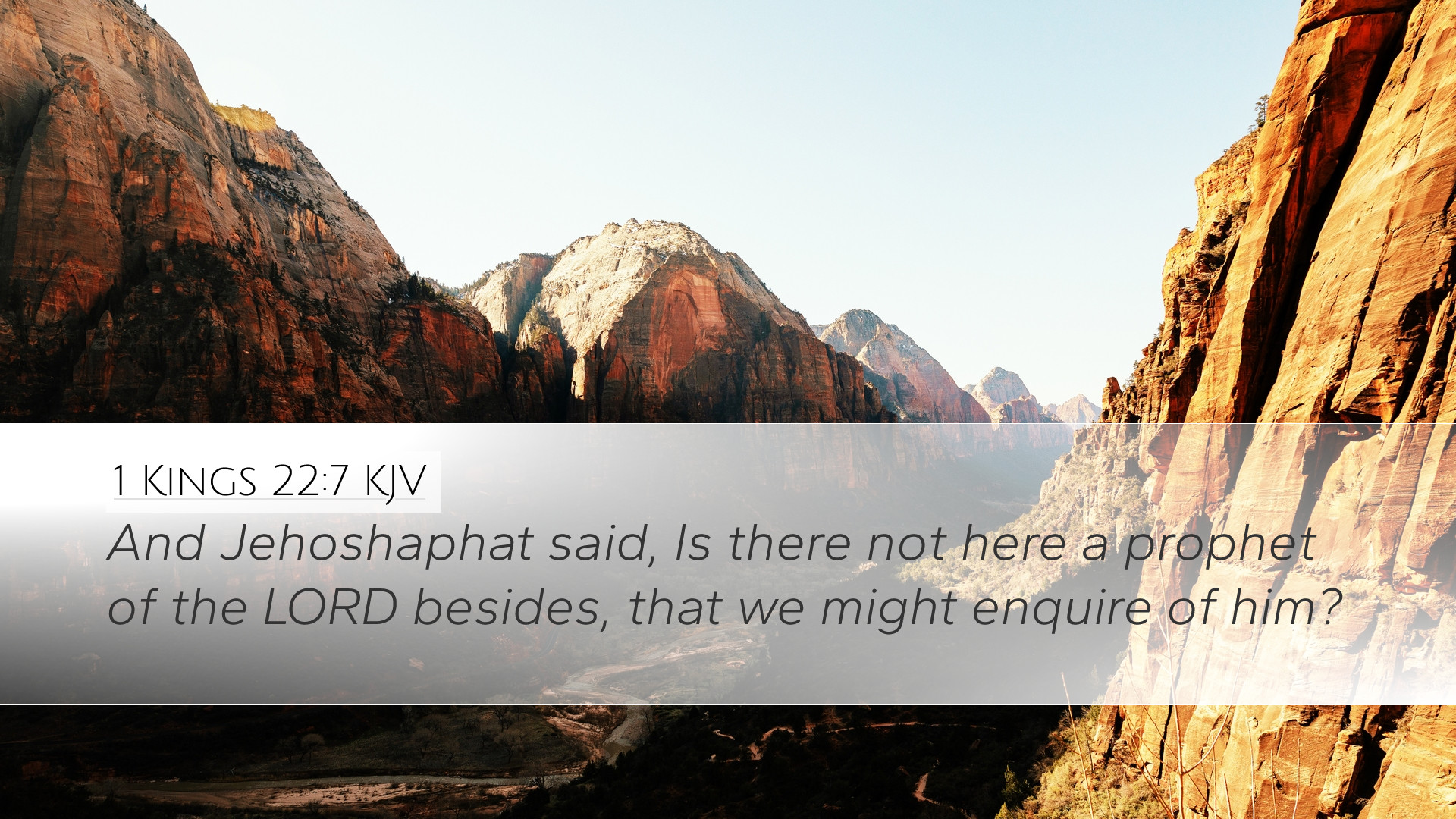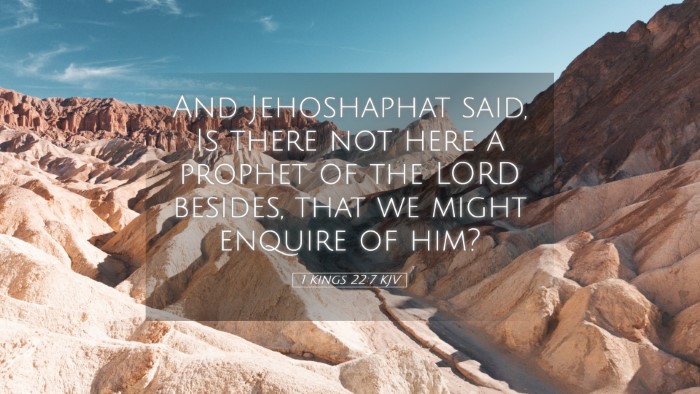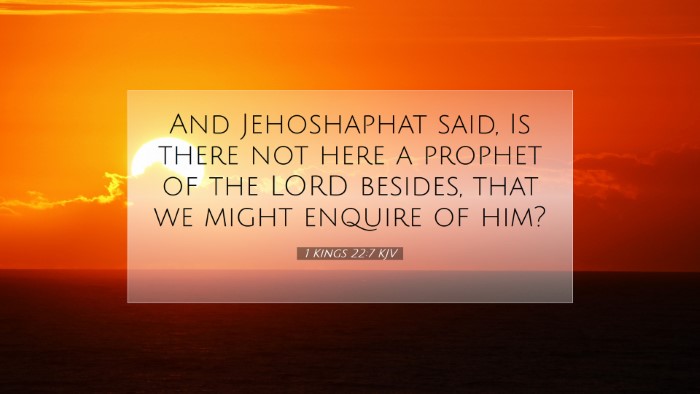Commentary on 1 Kings 22:7
Text of the Verse: "But Jehoshaphat said, 'Is there not a prophet of the Lord here, that we may inquire of him?'"
Contextual Background
This verse takes place in a critical period of Israel’s history when King Ahab of Israel sought to enlist King Jehoshaphat of Judah to join him in battle against Ramoth-Gilead. Despite Ahab's arrogance and idolatry, Jehoshaphat, known for his desire to please God, sought spiritual counsel before proceeding. This highlights a pivotal moment showing the contrast between Ahab's reliance on pagan prophets and Jehoshaphat's desire to hear from the true God.
Insights from Matthew Henry
Matthew Henry emphasizes the importance of seeking divine counsel in all decisions. Jehoshaphat’s query reflects a heart inclined towards righteousness; he recognized the need for divine guidance before engaging in warfare. Henry notes that true wisdom lies in consulting God's prophets, and Jehoshaphat's inclination to ask for such guidance was a commendable trait.
Henry also highlights that Jehoshaphat’s coming alongside Ahab, who was notorious for his unrighteous ways, posed a danger. However, Jehoshaphat sought the Lord's direction in a situation where many might simply rely on human judgement.
Insights from Albert Barnes
Albert Barnes provides a detailed exposition about the significance of Jehoshaphat’s question. He remarks that Jehoshaphat's inquiry indicates a deep thirst for spiritual truth and the acknowledgment of God's authority in determining the outcome of their undertakings. Barnes suggests that in contrast to Ahab’s false prophets, Jehoshaphat represents true piety by seeking the prophet of the Lord, which reflects the need for genuine leaders to be connected to God.
Furthermore, Barnes notes that this moment underscores the moral responsibility that comes with leadership; a king must not only decide but must also seek the right counsel, promoting a culture of reverence for divine insight.
Insights from Adam Clarke
Adam Clarke interprets this verse within the larger narrative of the kings of Israel and Judah. He points out that Jehoshaphat's request indicates a recognition of the limits of human wisdom. Clarke emphasizes that a sincere pursuit of God's will is crucial for effective leadership and success in any endeavor.
Clarke also highlights Jehoshaphat's character, illustrating that good kings prioritize God's word and being attentive to His voice. This emphasizes a timeless lesson for all leaders today: the necessity of seeking accountability through prayer and godly counsel before engaging in significant actions or decisions.
Theological Implications
This verse serves as a reminder for modern-day believers about the importance of seeking divine guidance. It challenges the notion of acting independently or without spiritual consultation. The inquiry made by Jehoshaphat opens up the discourse on the critical role of prophets in providing God’s insight and direction.
- Divine Guidance: The significance of seeking direction from God through spiritual leaders and prayer.
- Contrast of Leadership: The differing qualities of leadership between Ahab and Jehoshaphat highlight moral integrity vs. moral failure.
- Prayer and Consultation: Emphasizing the practice of prayer and seeking counsel in leadership decisions.
Practical Applications
This passage calls believers to examine their own lives and leadership styles. It encourages pastors, theologians, and students to adopt a posture of humility in decision-making and to prioritize hearing from God through His Word and through the counsel of the wise.
- Seek God First: Prioritize engaging with God before embarking on any new ventures or making significant decisions.
- Accountability: Surround oneself with a community of believers who can offer godly counsel and accountability.
- Value of Prophetic Voices: Recognize the role of prophetic voices in contemporary faith communities and remain open to their insights.


